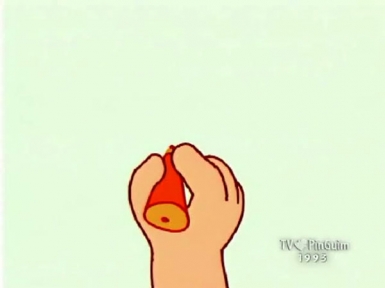In the space between education, invention, and research, the Brazilian duo Kiko Mistrorigo and Celia Catunda has perhaps the most unusual career out of a generation of creators who experienced the end of the Brazilian dictatorship, the beginnings of democratization, the constructivist heritage of São Paulo’s concrete poetry, and the radical technological experience brought about by the digital era. Based on graphical and formal solutions for words and poems, they established an intense dialogue with child audiences, always following one single principle: giving viewers a chance to be able to want more and better.
Now, by means of the Fishtronaut character (a production shown on the Discovery Kidschannel that premiered in April 2009), Kiko Mistrorigo and Celia Catunda’s ideas are present in different countries and continents. By the end of this year, the adventures ofthe character - a spy fish engaged in environmental defense - will be aired in a large portion of the Arab world by the Al-Jazeera network.
In between the desire of poet Augusto de Campos, who dreamed of a verse that would be able to spin in space, and the Fishtronaut’s investigations in a threatened planet, Mistrorigo and Catunda find a solid coherence built upon various forms of refusal: refusal of a limit to the field of poetic experience, refusal to the establishment of a “taste”for the child audience (conditioned, in Brazil, by the lack of formal and intellectual ambition of commercial TVs), and refusal of a national culture doomed to the role ofjust replicating or emulating the strategies of European and North American entertainmenttelevision.
At the genesis of all actions (which Mistrorigo and Catunda also understand as the result of fortunate circumstances) lies the belief that there can be a “Brazilian way” of grasping reality, conditioned by the national historic experience. Thus, the wealth supposedly lies in a “creative need” capable of doing the most with the least, thus enabling the strongest hierarchies (can’t that which is for children also suit adults?) tobe reworked and recomposed, departing from their original positions. Within this context, the Fishtronaut is present in [poet] Paulo Leminski just as once André Breton and surrealism were present in Walt Disney.
The duo Kiko Mistrorigo and Celia Catunda features in the final part of the Operation for the Masses series, which also includes Arnaldo Antunes and Wilton Azevedo. The project sets out to investigate the presence of the Brazilian Constructivist Project in the current national production, as regards its most revolutionary potential: that of establishing a creative rapport with society.
Further info on Célia Catunda and Kiko Mistrorigo available at the collection
